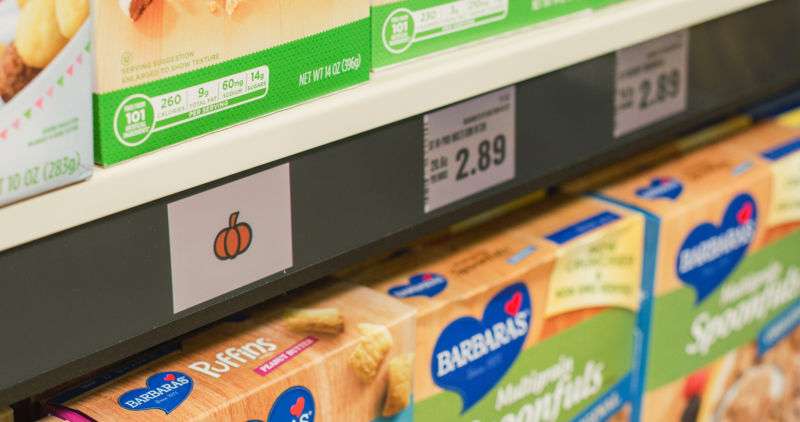
Microsoft, Kroger team up to fight Amazon with high-tech grocery stores

Big grocery stores are adapting to the changing times and the ever-increasing threat from Amazon. Kroger is the latest grocery giant to team up with a tech company—Microsoft—in order to give itself an edge. The two have come together to make a new high-tech grocery store experience, leveraging cloud computing, digital displays, and other technology to make the shopping experience more convenient for customers and employees.
Currently, two Kroger stores are being used to pilot the program—one in Monroe, Ohio, and one in Redmond, Washington—close to both companies’ headquarters. Microsoft’s Azure stores and processes in-store data, while new electronics change the ways that customers and employees interact with products. New digital displays replace paper tags and list products’ prices, promotions, and nutrition information. They can more easily change when products move throughout the store or when Kroger makes pricing and promotion changes.
The displays will also change to show icons that correspond to nearby customers’ grocery lists, making it easier for them to find what they need. As for employees, a new “pick-to-light” system lights up areas of shelves with needed products, letting employees fulfill curbside pickup orders more efficiently.
But where there’s a digital display, ads are not far away. Kroger plans to sell digital advertisements on these displays that can be targeted to customer demographics. Kroger may also look to sell the high-tech grocery technology to other retailers, giving it an additional revenue stream.
Kroger also collects in-store data by using ceiling-mounted cameras. According to a report from Bloomberg, these cameras watch over the aisles as people shop, keeping track of inventory and “crunching data.” All of this collected data helps Kroger learn more about its customers’ shopping habits and the state of its individual stores. Microsoft’s Azure cloud service handles most of that data, as Kroger (like many others) didn’t want to pay Amazon for the use of its AWS cloud infrastructure.
Azure is AWS’ biggest competitor, so this partnership gives Microsoft an edge in the grocery industry. It’s not the first grocery endeavor that Microsoft has embraced, either: last year, Microsoft and Walmart were reported to be working on cashier-less store technology to compete with the new Amazon Go checkout-free stores popping up across the country.
Kroger is also battling all of Amazon’s grocery and retail experiments. Ever since Amazon bought Whole Foods in 2017 for $13.7 billion, grocers have been trying to better compete with the online retail giant in the brick-and-mortar space. Kroger in particular launched a self-driving grocery delivery service with Nuro’s help, allowing it to deliver grocery orders using self-driving cars in the Scottsdale, Arizona, area.
Kroger’s high-tech grocery experience isn’t the same as Amazon Go, nor does it appear as impressive yet, but it’s the start of (what Kroger hopes) is a modernization process that will keep it relevant. The competition with Amazon is fierce, especially as Amazon adds more Whole Foods perks for Prime members, expands its own grocery delivery services, and encroaches on the brick-and-mortar space even further. Partnering with Microsoft gives Kroger a huge tech ally that can help it modernize its stores more quickly and effectively than if it were to do so alone.




